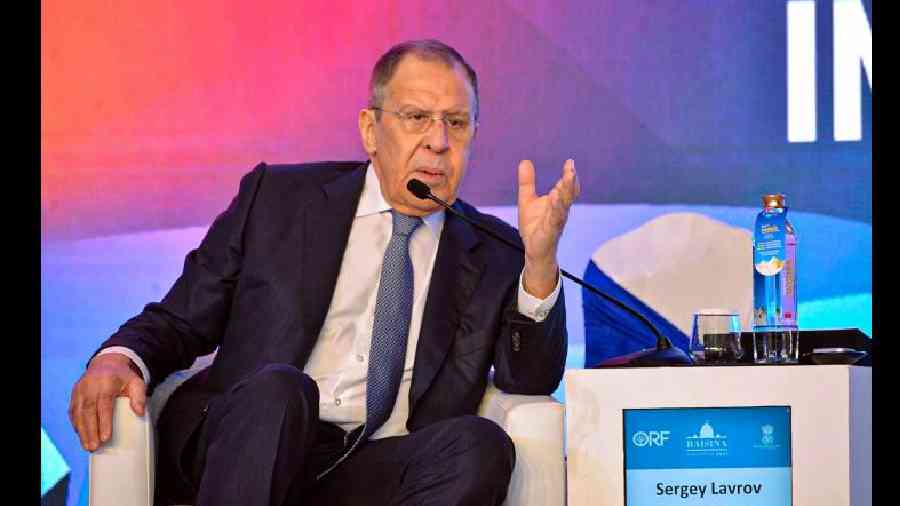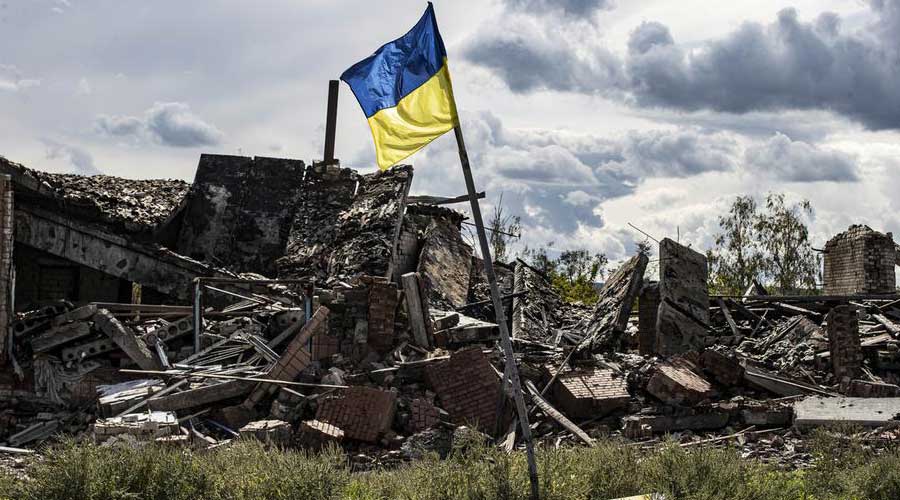His country accused by the US of being the “hold out/outlier” that blocked consensus at two successive G20 ministerials in a week, Russian foreign minister Sergey Lavrov on Friday questioned the duplicity of the West and asked whether earlier declarations of the grouping had ever reflected on what was going on at that time in Iraq, Syria or Yugoslavia.
Participating in a question-answer session at the Raisina Dialogue, Lavrov sought to use the forum to present the Russian view that is often ignored in the western narrative on the Russia-Ukraine war.
He found considerable support in the audience of foreign policy wonks and diplomats that appeared to appreciate him calling out the doublespeak of the West -- be it on Nato expansion or the wars the US unleashed on faraway countries.
Bringing up what transpired at Thursday’s G20 foreign ministers’ meeting, Lavrov said: “The entire G20 was only about what to do with Ukraine and have it in the declaration. I asked India, Indonesia and those who have chaired such meetings earlier whether G20 ever reflected in those declarations the situation in Iraq, Syria or Yugoslavia.”
He answered the question himself, saying “nobody was giving a damn about anything other than finances and macro-economic policies for which G20 was formed”. Responding to a question on the need for a protracted war over Nato’s expansion, Lavrov referred to the commitment given by the western powers to the then Russian leader, Mikhail Gorbachev, in 1989-90 not to expand the military grouping if Russia accepted German unification. Between then and last year, he said, Nato had broken several commitments — both oral and written — on not expanding or increasing its security at the expense of Russia, developments Moscow could not have ignored.
In February 2022, according to Lavrov, shelling in Donbass intensified. The Russians in Ukraine were prevented from using the Russian language, he added.
Lavrov said: “We defended our security and Russian people who were denied by (Ukrainian President) Zelensky to use Russian language in media, education…. They cancelled by law everything to do with the Russian language…. It was not difficult to implement the Minsk Agreement which involves giving special status to this small territory in the east of Ukraine -– much smaller than the territory controlled by the Russian army now.”
He repeatedly drove home the duplicity in the international narrative on the Ukraine war and Russia’s concerns, asking why no one had asked questions of the US when Washington decided to declare wars in distant lands like Yugoslavia, Iraq, Lybia and Syria if it perceived a threat to its national interests.
Russia, he added, had been warning for 10 years about the pitfalls of Nato expansion and its security concerns on its borders. Lavrov insisted that countries in the region were affected not so much by the Russian action in Ukraine as by the reaction of the West to “what we are doing in Ukraine after we had warned them for decades to stop the expansion of Nato and pushing arms into Ukraine”.
This is an existential issue for Russia, he added. As for negotiations, his counter was why the same was never asked of Zelensky who, in September last year, signed a decree making it a criminal offence to negotiate with Russia as long as Vladimir Putin was President.
Further, he pointed to the western insistence that negotiations could take place only after Ukraine had won on the battlefield.











